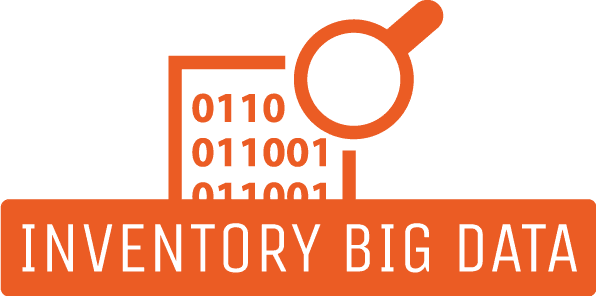Evans – Quality Manager
Description
As Quality Manager, Evans is responsible for ensuring that the products and services produced by his company meet or exceed customer expectations and industry standards. He is in charge of implementing and maintaining a quality management system, conducting audits and inspections to identify areas for improvement, and working with cross-functional teams to implement corrective actions. Evans also monitors and analyzes quality data, identifies trends and patterns, and provides recommendations to senior management to improve overall quality performance.
Who is Evans?
Evans, a Quality Manager in an industrial company, embarked on a unique journey in pursuit of excellence. He was always fascinated by the intricate processes and systems that underpin industrial manufacturing, and he was determined to make a positive impact on the industry.
As a young graduate, Evans started his career as a junior engineer, working long hours in the factory and tirelessly learning the ropes of the trade. He quickly developed a reputation for his dedication, attention to detail, and innovative thinking.
Evans’ journey to becoming a Quality Manager was not an easy one. He faced many challenges along the way, including resistance to change and bureaucratic hurdles. But Evans persevered, drawing on his passion for the industry and his unwavering commitment to excellence.
Through his hard work and determination, Evans rose through the ranks, eventually becoming a Quality Manager. In this role, he was responsible for ensuring that the company’s products met rigorous quality standards, while also driving continuous improvement in the manufacturing process.
Evans’ character was defined by his tenacity and resilience, as well as his ability to inspire and motivate others. He was a natural leader, and his colleagues looked up to him as a role model. He was also known for his integrity and honesty, never compromising on the quality of his work or the standards he held himself to.
In his quest for excellence, Evans was always seeking to learn and grow. He attended industry conferences and seminars, and he was always on the lookout for new technologies and best practices that could be applied to the company’s operations.
Despite the challenges he faced, Evans never lost sight of his ultimate goal: to make a meaningful contribution to the industry and to leave a lasting legacy of excellence. His journey was a testament to the power of determination, hard work, and a passion for one’s craft.
FAQ
Q: What does a Quality Manager do in an industrial company?
A: A Quality Manager is responsible for ensuring that the products and services provided by the company meet or exceed customer expectations in terms of quality, safety, and reliability. They oversee the development and implementation of quality management systems, policies, and procedures, as well as ensure compliance with industry standards and regulations.
Q: What are the key skills required to be a successful Quality Manager?
A: A successful Quality Manager should possess excellent communication, leadership, and problem-solving skills. They should be detail-oriented, analytical, and have a strong understanding of quality control principles and techniques. Additionally, they should have a deep knowledge of industry standards and regulations related to quality management.
Q: How do Quality Managers ensure that the products or services meet the required quality standards?
A: Quality Managers use various techniques and tools such as statistical process control, quality audits, and root cause analysis to ensure that products or services meet the required quality standards. They work with other departments within the company, including production, engineering, and supply chain, to identify areas for improvement and develop corrective actions.
Q: What are the benefits of implementing a quality management system?
A: Implementing a quality management system can lead to improved product and service quality, increased customer satisfaction, and reduced costs associated with quality issues. It can also help companies comply with industry standards and regulations, and improve overall efficiency and productivity.
Q: How do Quality Managers measure the effectiveness of a quality management system?
A: Quality Managers typically use metrics such as customer satisfaction, defect rates, and on-time delivery to measure the effectiveness of a quality management system. They also conduct regular internal audits and reviews to ensure that the system is meeting its objectives and identify areas for improvement.
Q: What are some common challenges faced by Quality Managers?
A: Some common challenges faced by Quality Managers include managing quality issues in a fast-paced production environment, balancing cost and quality objectives, ensuring compliance with changing regulations, and maintaining effective communication with stakeholders at all levels of the organization.
Q: How can a company improve its quality management system?
A: A company can improve its quality management system by regularly reviewing and updating its policies and procedures, providing ongoing training to employees, using data and analytics to identify areas for improvement, and encouraging a culture of continuous improvement and innovation. It can also benefit from seeking input from customers and stakeholders to ensure that the system is meeting their needs and expectations.
Q: What is the role of Quality Managers in ensuring product safety?
A: Quality Managers play a crucial role in ensuring product safety by developing and implementing processes that identify potential safety hazards and risks, and by establishing procedures to prevent those hazards from occurring. They work closely with other departments, such as product development and manufacturing, to ensure that safety standards are met and that products are safe for use.
Q: What are some common quality management tools used by Quality Managers?
A: Some common quality management tools used by Quality Managers include flowcharts, Pareto charts, cause-and-effect diagrams, statistical process control, and quality audits. These tools help Quality Managers identify areas for improvement, monitor quality performance, and track progress towards quality objectives.
Q: How can a Quality Manager ensure compliance with industry standards and regulations?
A: To ensure compliance with industry standards and regulations, Quality Managers must stay up-to-date with the latest standards and regulations applicable to their industry. They must also establish procedures to ensure compliance, provide training to employees on relevant standards and regulations, and conduct regular audits and assessments to identify areas for improvement.
Q: What is the role of Quality Managers in continuous improvement?
A: Continuous improvement is an ongoing process that involves identifying and implementing changes to improve the efficiency and effectiveness of a company’s quality management system. Quality Managers play a critical role in driving continuous improvement by regularly monitoring quality performance, identifying areas for improvement, and developing and implementing plans to address those areas.
Q: How does a Quality Manager collaborate with other departments within the company?
A: Quality Managers work closely with other departments within the company, including production, engineering, and supply chain, to ensure that quality objectives are met. They collaborate with these departments to identify areas for improvement, develop and implement corrective actions, and monitor quality performance. Effective communication is key to successful collaboration between Quality Managers and other departments.
Q: What is the importance of documentation in quality management?
A: Documentation is an essential component of quality management. It provides a record of the processes, procedures, and policies used to ensure quality, which can be used to demonstrate compliance with industry standards and regulations. Documentation also helps to ensure consistency in quality management practices and can be used as a reference for training and development.




